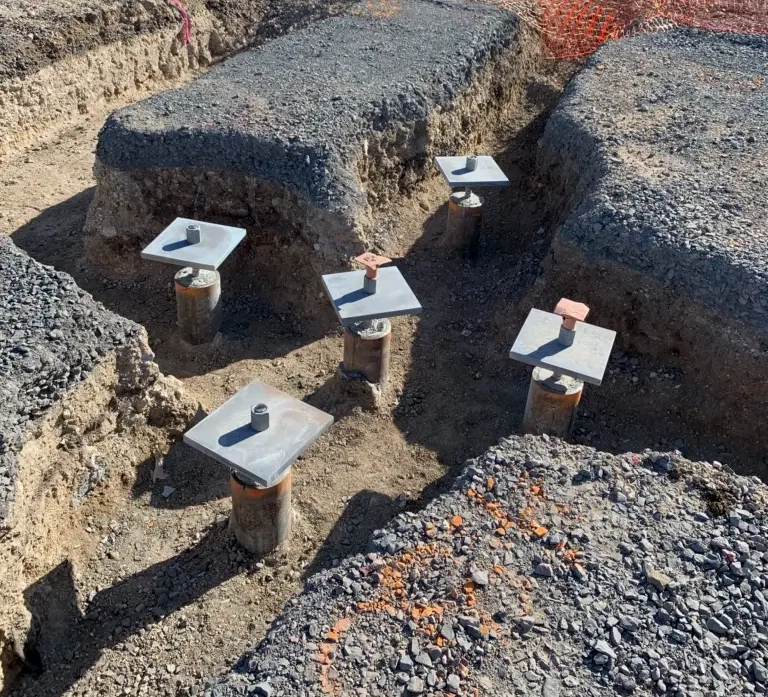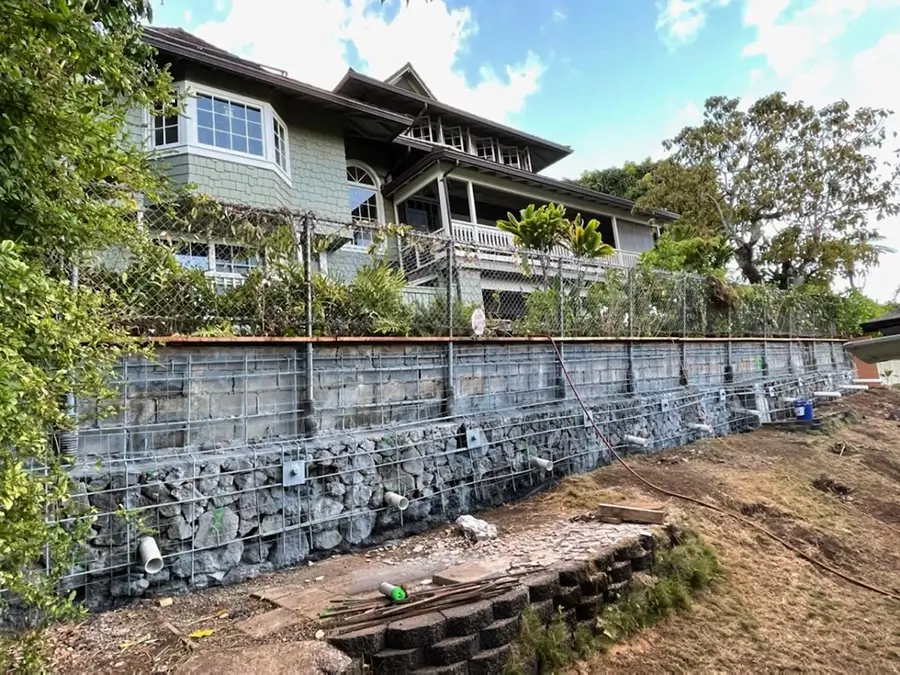GEOTECHNICAL SOLUTIONS
Foundation Systems Hawaii, Inc. is committed to superior service, innovative solutions, and utmost quality in our geostructural construction projects. We are Hawaii’s premier geotechnical contractors. If you have foundation problems, give us a call today!
Foundation (structure) underpinning is accomplished by advancing deep foundation elements (micropile, pin pile, helical pier, etc…) along the perimeter of the structure experiencing distress. The frequency of these elements is determined by the construction type and weight of the structure. The depth of the deep foundation element is designed so that they will be socketed into firm and undisturbed soil or rock that will be capable of supporting the weight of the structure. The weight (load) of the structure is then transferred to the new deep foundation via mechanical connections to existing foundations.
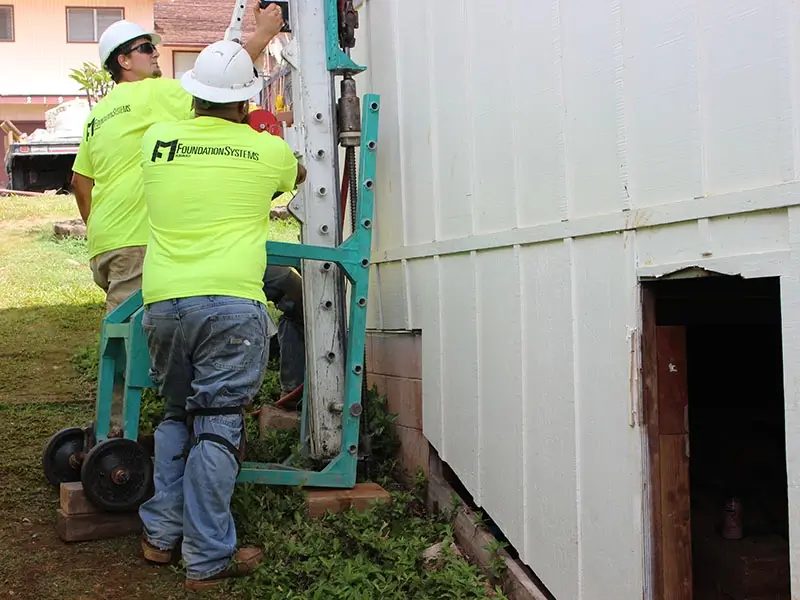
This procedure involves lifting a structure that has settled or moved, back to its original location. This procedure can be performed using the structures existing foundation elements or in conjunction with new deep foundations. Regardless, a series of hydraulic and/or mechanical jacks are placed as required to raise the structure in a synchronized manner. This work is highly specialized. FSH has many years of experience in concrete leveling. Our state of the art procedures guarantee the desired results while mitigating potential undesired conditions of this type of work.
Soil Treatment
Swelling in clay soil is caused when clay attracts and retains water. This happens when tiny, but powerful, electrical charges present in the soil attract the moisture. FSH’s soil treatment neutralizes this problem by introducing more ions with an opposite charge from those in the clay. Once the ions in the clay have been neutralized, the clay no longer attracts water. The process can be done either before or after construction, working to prevent damage or to correct problems following damage previously caused by untreated soil. Treatment is fast, easy, inexpensive, and permanent. Changes in moisture due to the changing seasons or other factors, will no longer cause damage from heaving and swelling soil.
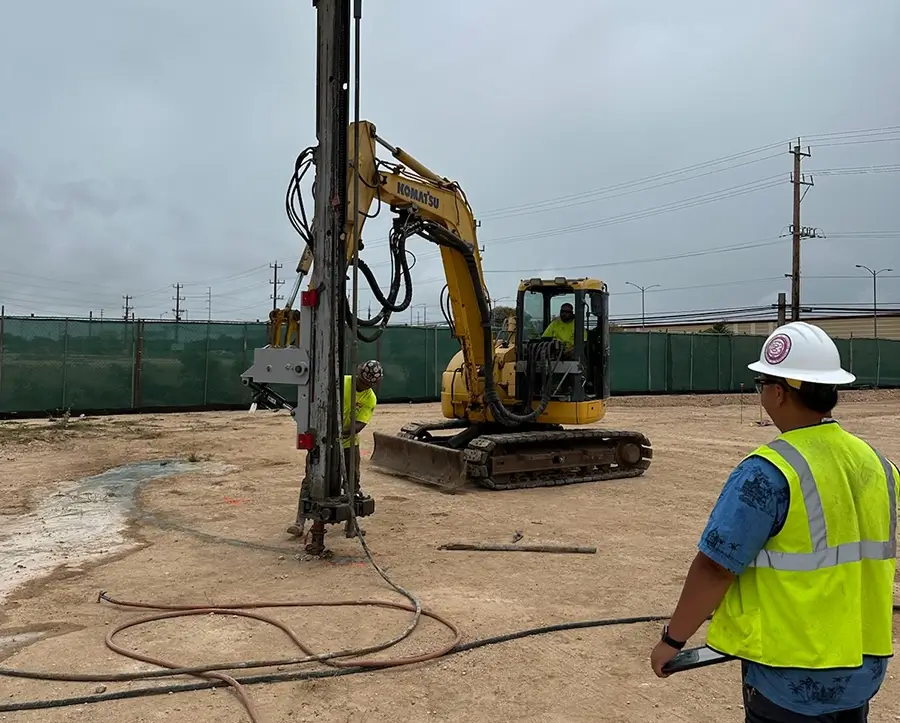
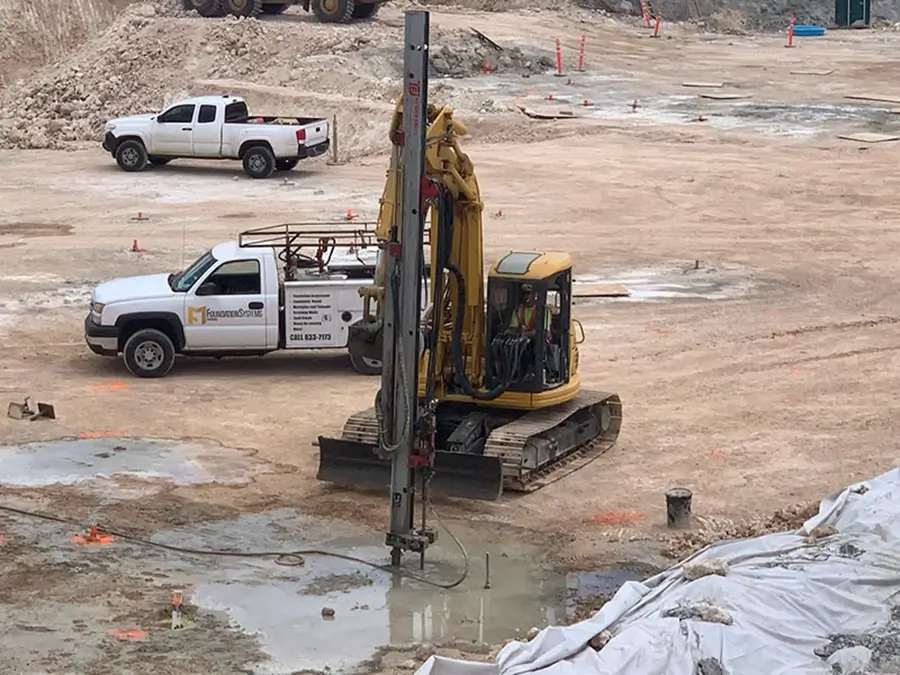
Due to water erosion and other means, soil is displaced causing voids that jeopardize surrounding structures causing them to move or settle. Void grouting improves the soil by increasing the grounds bearing capacity and can arrest further movement.
Foundation Issues? Contact us today to see how we can help.
In general, a micropile consists of a small diameter (usually less than 12 inches) drilled and grouted, pile with steel reinforcing. The micropile foundation is typically constructed by drilling a hole (with or without casing), placing reinforcing steel in the hole, and grouting the hole. Micropiles are desirable because they can be installed readily in access restrictive environments and in numerous soil types and ground conditions. In addition, installation of the micropiles generally causes minimal disturbance to adjacent structures, the adjacent soils, and the environment.
Tieback anchors are post-stressed structural elements installed near horizontal in soil or rock that are used to transmit an applied tensile load into the ground. Tieback anchors consist of a high strength steel tendon (hollow bar or strand) grouted into a drilled hole and tensioned against a structural anchorage such as a soldier pile wall, a sheet pile wall, or a CMU or shotcrete wall.
Ground anchors supply lateral reinforcement to existing and failing retaining walls, new retaining walls (eliminating the need for large excavations and cantilever footings), and secure steep slopes. Ground anchors can be installed in temporary and permanent applications.
Helical Piles
Our Helical Pile System is engineered to perform and properly tested in accordance with documented standards and criteria for tension and compression. Helical piles are deep foundation elements constructed using steel shafts with helical flights. The shafts are advanced to bearing depth by twisting them into the soil while monitoring torque to estimate the pile capacity. A thorough understanding of the subsurface conditions is necessary to properly interpret the torque conversion and feasibility of installation. Helical piles are not recommended for cobble, boulders, hard, and unknown sub-surface conditions.
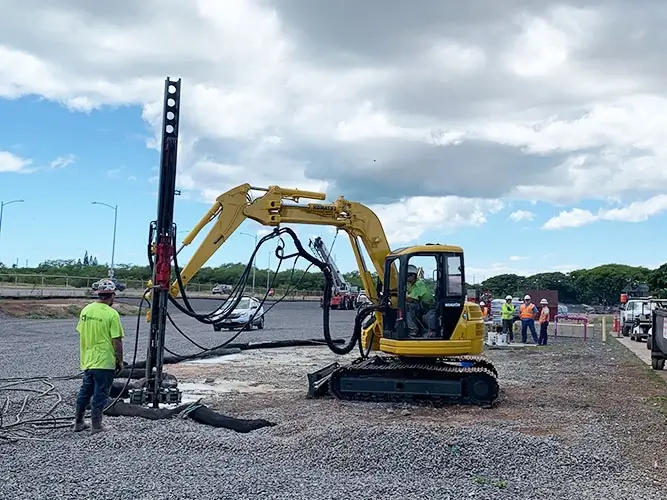
No Cost Site Assessment
Schedule a site assessment wit one of our foundation technicians or associates engineers. We can get onsite and give recommendations about the geo-structural health of your property.


